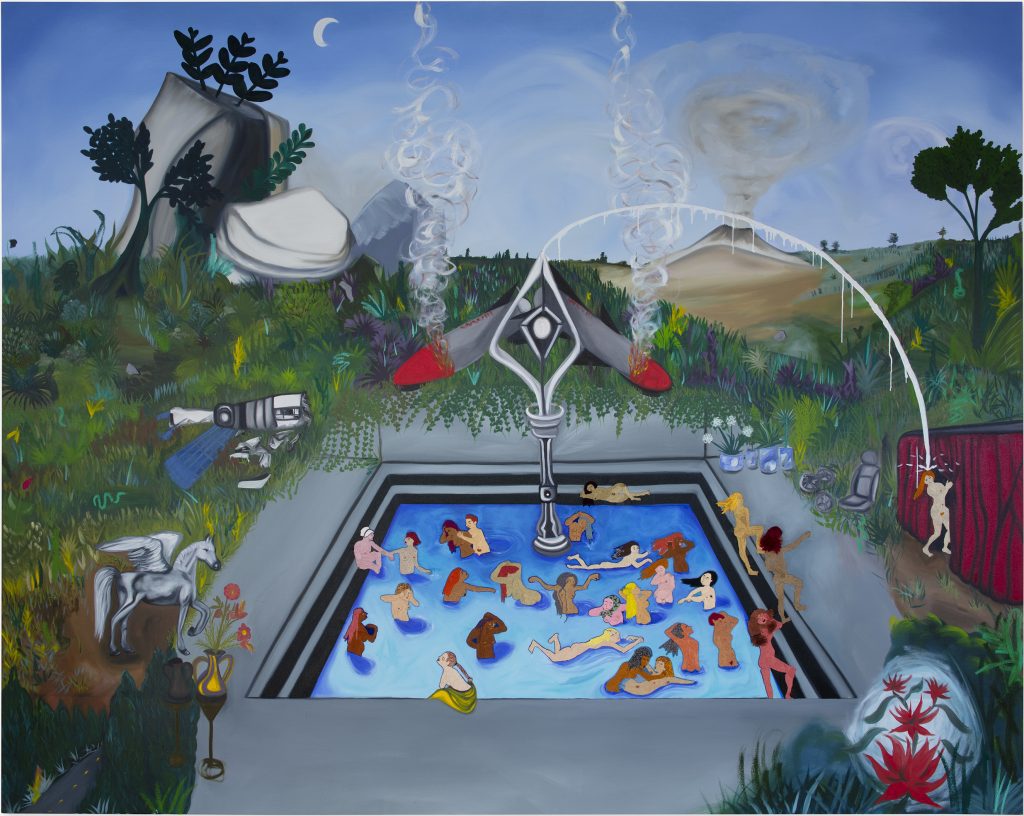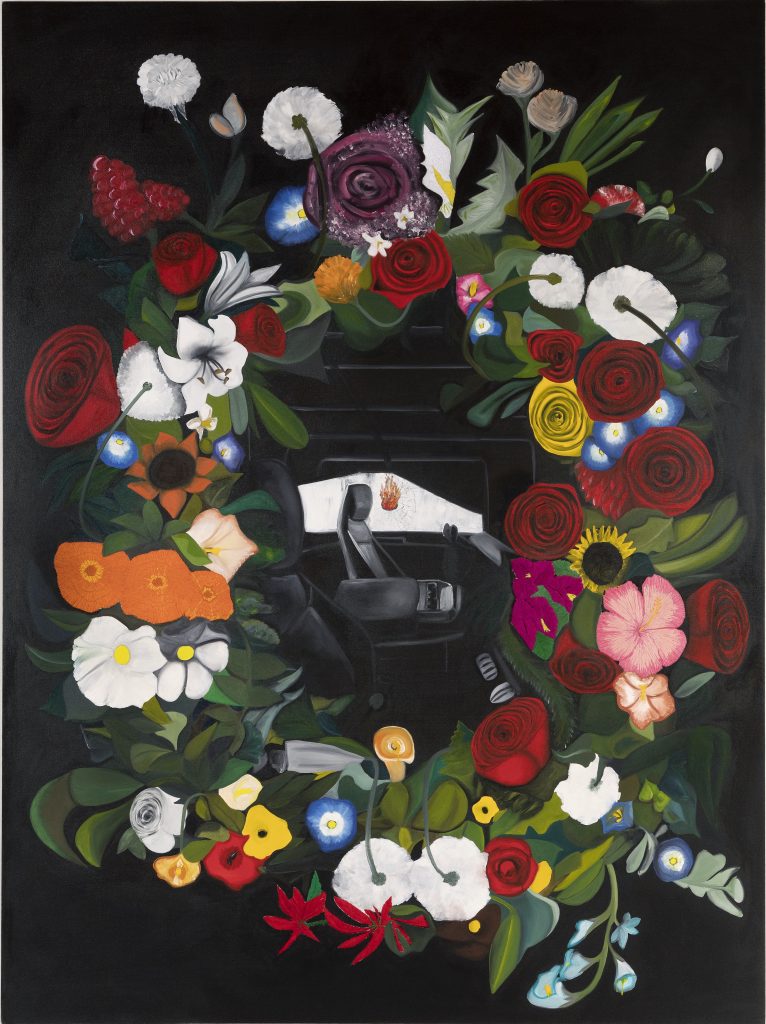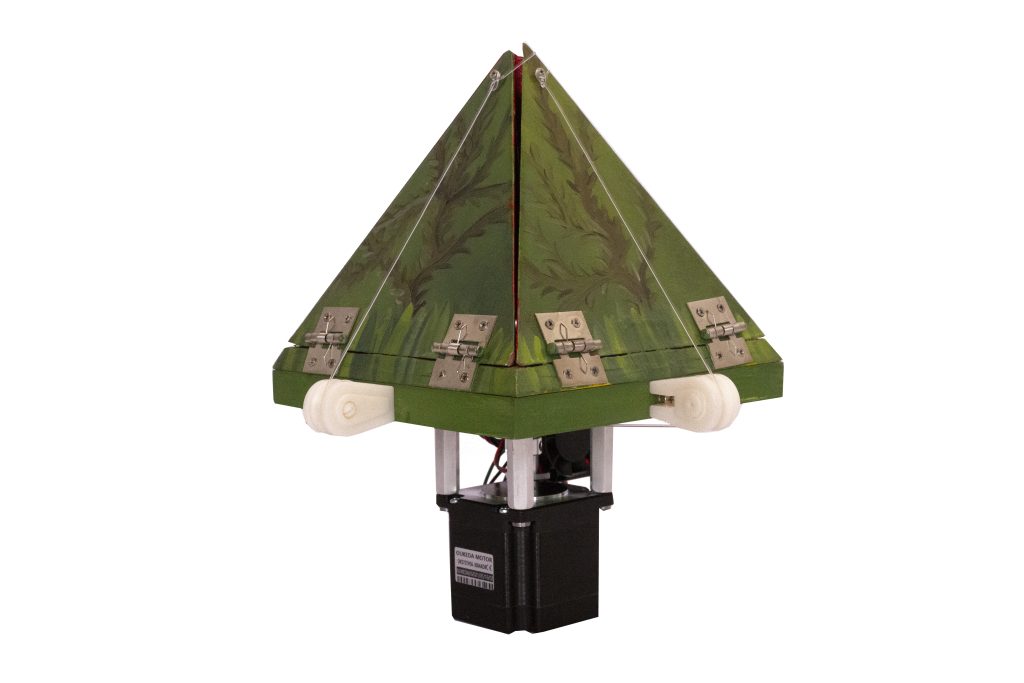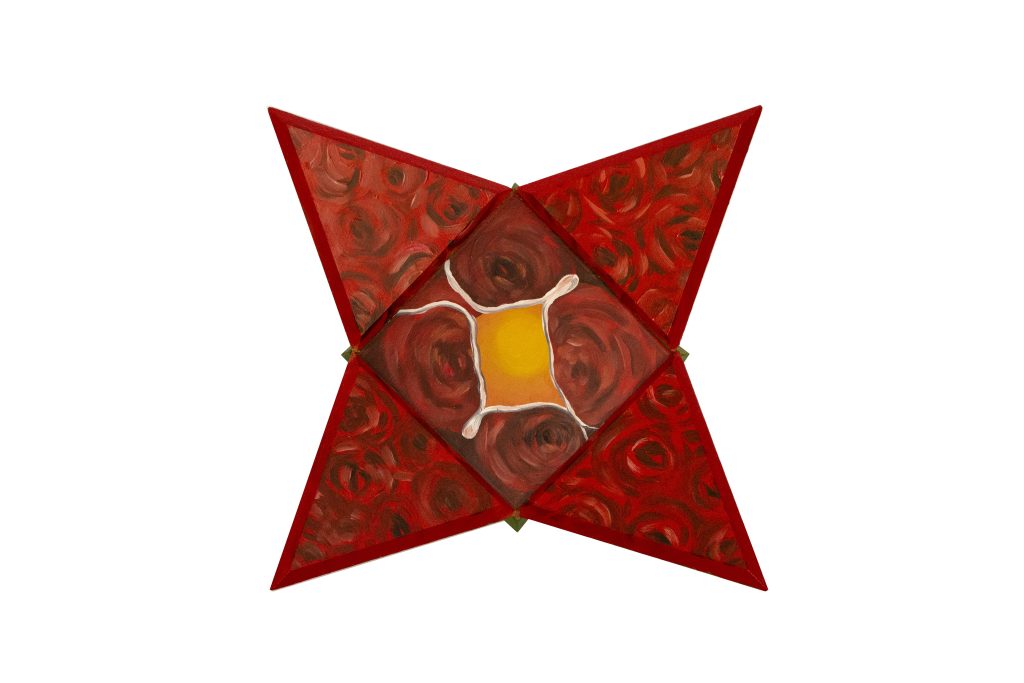Create to Destroy, Destroy to Create: Writing Frieda Toranzo Jaeger
The ascent into Modern Art Oxford’s Upper Gallery feels a lot like climbing into a spaceship. It’s a humid Saturday in April, and the room at the top of the stairs is high-ceilinged and metal-beamed. I am relieved when I turn at the top and I am met with colour and texture. Such visual excess is something I have always felt compelled by. Perhaps, this is because I am all too familiar with the kinds of heteropatriarchal tools that consistently demand me to be understated. What strikes me first is a screaming aqua. It’s a painting of a swimming pool, busy with women bathing; End of Capitalism, The Fountain (2022). It is only on closer inspection that I see these women are formed from embroidery, stitched on to the scene like they crash-landed and arrived there from a different world. It’s a familiar feeling, probably a queer one, of sitting just on the surface of things, of not quite being able to mesh. But perhaps, I think, this isn’t a sitting on top, but a lifting away. Perhaps, this end of capitalism that the painting depicts has freed these women, and granted them a third dimension. Indeed, this aligns with how the painting reimagines Cranach’s The Fountain of Youth with an alternative tone of bodily liberation.

When Modern Art Oxford asked me to create a poetic response to Frieda Toranzo Jaeger’s exhibition A future in the light of darkness, I was excited by the freedom that this commission granted me. Toranzo Jaeger suggests that queer futures are contingent on the decolonisation of imagination. Thus, I felt I was able to take great liberties with my own imagination, and used my poem Motherboard to bring my own vision of a queer future to life. If she takes painting as her subject and medium, then I take writing as mine. After all, I am a poet not a painter! Compelled by her reimagining of cultural history in End of Capitalism, the Fountain (2022), I decided to make my own play on the literary canon, with the central figure of Motherboard taking on the cast-out, placeless qualities of Frankenstein’s monster, or literature’s Woman in the Attic. I also wanted to use my chosen material (words) to emulate the rich texture of Toranzo Jaeger’s work. I am interested in the work that words can do, the ways in which they can be welded into new meanings, and stretched beyond their definitions. I am more concerned with how words feel when they are placed in unusual proximities, rather than simply in what they mean. Similarly, Toranzo Jaeger combines forms, shapes, colours and textures in unusual proximities. Much like the embroidery that punctures her oil paintings,
placing her connection to traditional crafts passed down through her womenfolk against an allusion to Western art history, Toranzo Jaeger places the botanic in close proximity to the technological, offering a vision of possible sites for futural queer worlds. Just a quick glance
at Cybertruck (2020) reveals vibrant flora spilling into the interior of a car. It is this kind of textural frisson that I hope to emulate in Motherboard, through discordant imagery; a surrender to chaos, valued by Toranzo Jaeger as a mode of queer future-making.

To this end, I often found myself valuing the poetic texture of words, rather than the boundaries of their definitions, when making linguistic choices. I wanted to create the sense of words ‘standing in’ for meaning, words not typically placed together informing interpretations of each other, words in conversation with the contextual positionality (social, political, personal) that shapes their meaning. For me, this ‘stepping in’ feels reminiscent of the complex and often uncomfortable process of queer self-actualisation. Such an undertaking can often rely on words, signs and symbols to stand in for queerness which, whilst helpful and affirming in many ways, often fall short of fully encapsulating queerness, since it defies such categories and substitutions. Thus, I took great inspiration from Toranzo Jaeger’s use of excess, and her often overdetermined style. For one, this operates in contrast with what she calls the “homogenised …[and]… so white!” Western depiction of space and sci-fi. Toranzo Jaeger’s work both resists categorisation, through her unconventional use of canvases
(embroidered, free-standing, hanging from the ceiling), whilst also overdetermining categories to the point of extremity and, therefore, overspilling them. There is a pushing out of territorial borders by making these categories more acute. For example, the tetraptych Four
Seasons (2021) mechanically emulates the turning of the seasons so methodically and precisely as to overdetermine them. Just like drag presents gender in excess, these works become the seasons in drag.



I hope that Motherboard depicts an iteration of a queer future that resonates with people. I also hope that it fails to resonate with others. I would like to think that it is in the gaps left by these failures that new queer futures can be born, as varied and colourful as Frieda Toranzo Jaeger assures us that they can be.
Louisa Rimmer is a poet based in Oxford. Her poem Motherboard responds to Frieda Toranzo Jaeger: A future in the light of darkness, which was on display at Modern Art Oxford between 16 March and 26 May 2024.
